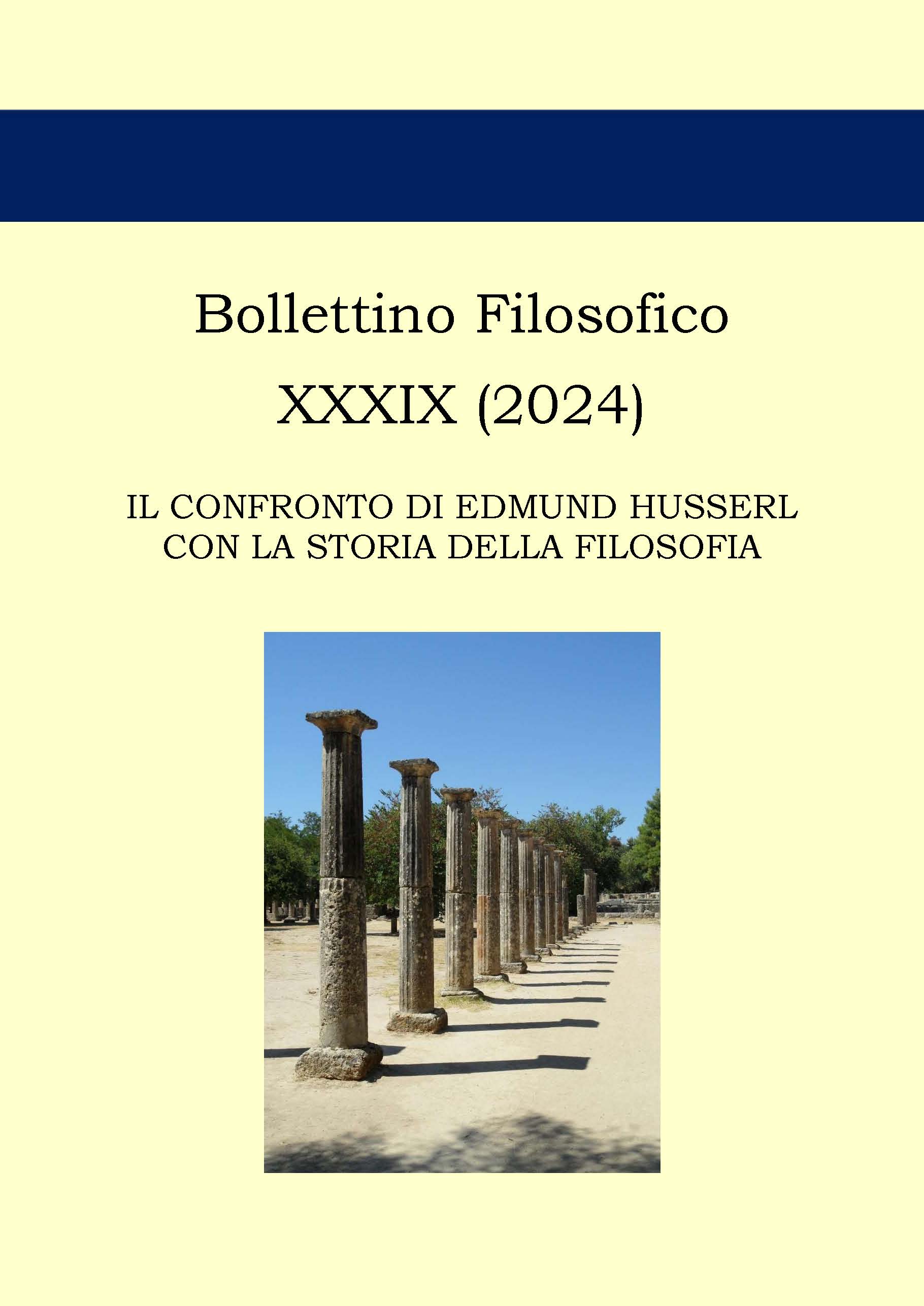The Philosopher and his Double. Husserl between Phenomenology, Sophistics and the Counter-History of Philosophy
DOI:
https://doi.org/10.6093/1593-7178/11404Abstract
This essay addresses the relationship between phenomenology, the history of philosophy, and sophistry. Its aim is to emphasize the originality of Husserl’s claim according to which the sophist is, somehow, the “doppelganger” of the philosopher. At first, two main figures in the phenomenological tradition are examined: Brentano and Heidegger. Both authors, in fact, also discussed the role of sophistry in the history of philosophy. The way in which Husserl conceives the history of the idea of philosophy and the historical function of Protagoras and, especially, Gorgias are then examined in detail. After a series of comparative remarks, this essay concludes by highlighting the philosophical function of the confrontation between philosophy and sophistry as it is emphasized by Husserl.
Keywords: Brentano, Heidegger, History of Philosophy, Husserl, Sophists
Downloads
Downloads
Published
How to Cite
Issue
Section
License
The author retains the copyright of his work whilst granting anyone the possibility “to reproduce, distribute, publicly communicate, publicly exhibit, display, perform and recite the work”, provided that the author and the title of the journal are cited correctly. When submitting the text for publication the author is furthermore required to declare that the contents and the structure of the work are original and that it does not by any means compromise the rights of third parties nor the obligations connected to the safeguard of the moral and economic rights of other authors or other right holders, both for texts, images, photographs, tables, as well as for other parts which compose the contribution. The author furthermore declares that he/she is conscious of the sanctions prescribed by the penal code and by the Italian Criminal and Special Laws for false documents and the use false documents, and that therefore Bollettino Filosofico is not liable to responsibilities of any nature, civil, administrative or penal, and that the author agrees to indemnify and hold Bollettino Filosofico harmless from all requests and claims by third parties.

